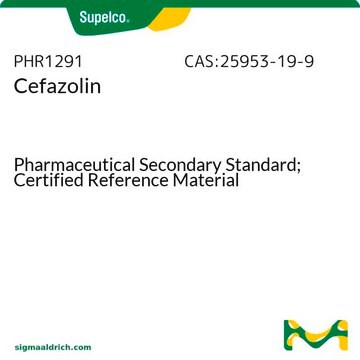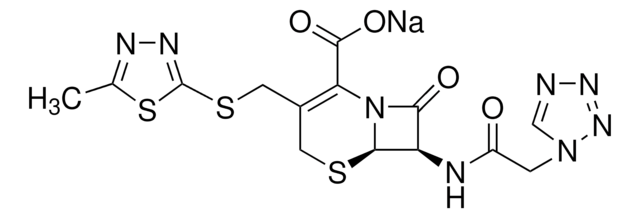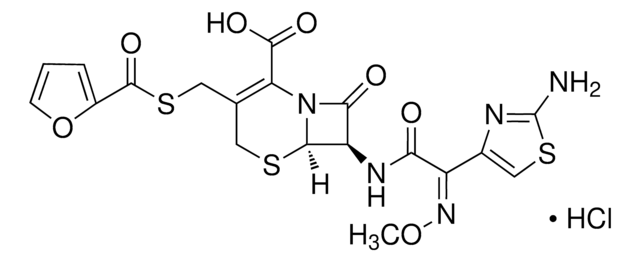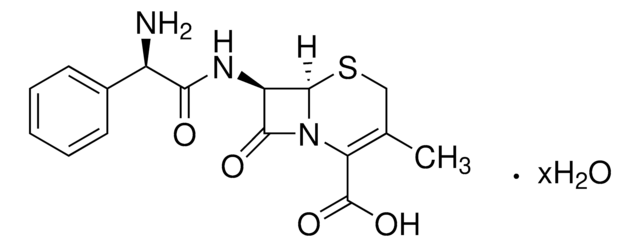C5020
Cefazolin sodium salt
89.1-110.1%
Synonym(s):
Cefazoline sodium, Monosodium cefazolin
About This Item
Recommended Products
Quality Level
Assay
89.1-110.1%
form
powder
antibiotic activity spectrum
Gram-negative bacteria
Gram-positive bacteria
Mode of action
cell wall synthesis | interferes
storage temp.
2-8°C
SMILES string
[Na+].Cc1nnc(SCC2=C(N3[C@H](SC2)[C@H](NC(=O)Cn4cnnn4)C3=O)C([O-])=O)s1
InChI
1S/C14H14N8O4S3.Na/c1-6-17-18-14(29-6)28-4-7-3-27-12-9(11(24)22(12)10(7)13(25)26)16-8(23)2-21-5-15-19-20-21;/h5,9,12H,2-4H2,1H3,(H,16,23)(H,25,26);/q;+1/p-1/t9-,12-;/m1./s1
InChI key
FLKYBGKDCCEQQM-WYUVZMMLSA-M
Looking for similar products? Visit Product Comparison Guide
Related Categories
General description
Biochem/physiol Actions
Preparation Note
Other Notes
Signal Word
Danger
Hazard Statements
Precautionary Statements
Hazard Classifications
Resp. Sens. 1 - Skin Sens. 1
Storage Class Code
11 - Combustible Solids
WGK
WGK 2
Flash Point(F)
Not applicable
Flash Point(C)
Not applicable
Personal Protective Equipment
Certificates of Analysis (COA)
Search for Certificates of Analysis (COA) by entering the products Lot/Batch Number. Lot and Batch Numbers can be found on a product’s label following the words ‘Lot’ or ‘Batch’.
Already Own This Product?
Find documentation for the products that you have recently purchased in the Document Library.
Customers Also Viewed
Our team of scientists has experience in all areas of research including Life Science, Material Science, Chemical Synthesis, Chromatography, Analytical and many others.
Contact Technical Service












